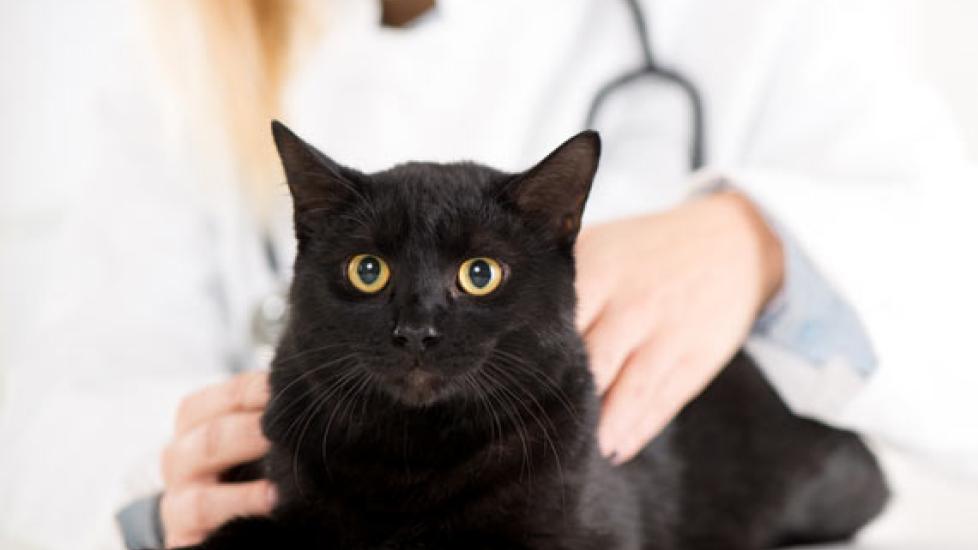The Effects of Diet on Bladder Stones in Cats
Bladder stones have long been relatively common in cats. In the past, the great majority of these stones were made out of struvite (magnesium ammonium phosphate), but times have changed.
Now, a cat is just about equally likely to develop struvite or calcium oxalate bladder stones. Unfortunately, this change isn’t simply due to a decrease in the number of struvite stones. The very diets we use to dissolve struvite have put cats at increased risk for calcium oxalate stones.
Prescription diets designed to dissolve and/or prevent the formation of struvite stones, and over the counter foods advertised to “promote urinary health” are formulated to make cats produce more acidic urine than they would otherwise. If urinary acidification is taken too far, however, calcium oxalate stones can be the result.
Cats with any type of bladder stones (or another disease affecting the lower urinary tract) typically have some combination of the following symptoms:
- Urinating outside the litter box
- Straining to urinate
- Urinating frequently but producing only a small amount at any one time
- Blood in the urine
- Licking around the urinary opening
To determine the cause of these symptoms, a veterinarian will perform a urinalysis, take X-rays, and possibly perform an ultrasound of your cat’s abdomen. If your veterinarian thinks that calcium oxalate bladder stones are the most likely diagnosis based on the results of these diagnostic tests, he or she will recommend surgery or other procedures (e.g., lithotripsy — using ultrasonic shock waves to break up stones until they can be passed) to remove them. The diagnosis can then be confirmed by sending off a sample of the stones to a laboratory for analysis.
Owners do have a lot of control over whether their cats will develop calcium oxalate bladder stones, however. Recommendations include:
- Do not feed a “urinary” diet to your cat without first consulting your veterinarian. Picking the wrong formulation can actually increase the chances that stones will develop.
- Feed canned cat food only. The high water content of canned foods promotes the formation of dilute urine. Calcium oxalate crystals are less likely to come out of solution and form stones in dilute urine. If necessary, you can even add a little extra water to canned food.
- Ask your veterinarian to check your cat’s blood calcium level. If it is high, a search for an underlying cause should commence both to lower the risk of stones and rule out the presence of other conditions that might need to be addressed.
- Have your veterinarian evaluate your cat’s urine on a regular basis and particularly after any changes in diet. Ideally, the urine specific gravity should be around 1.020, the pH over 6.5, and crystals should be absent. If you can’t reach these goals with diet alone, your veterinarian can talk to you about dietary supplements (e.g., potassium citrate) and other options that can help.

Dr. Jennifer Coates
Image: MilanMarkovic78 / Shutterstock
